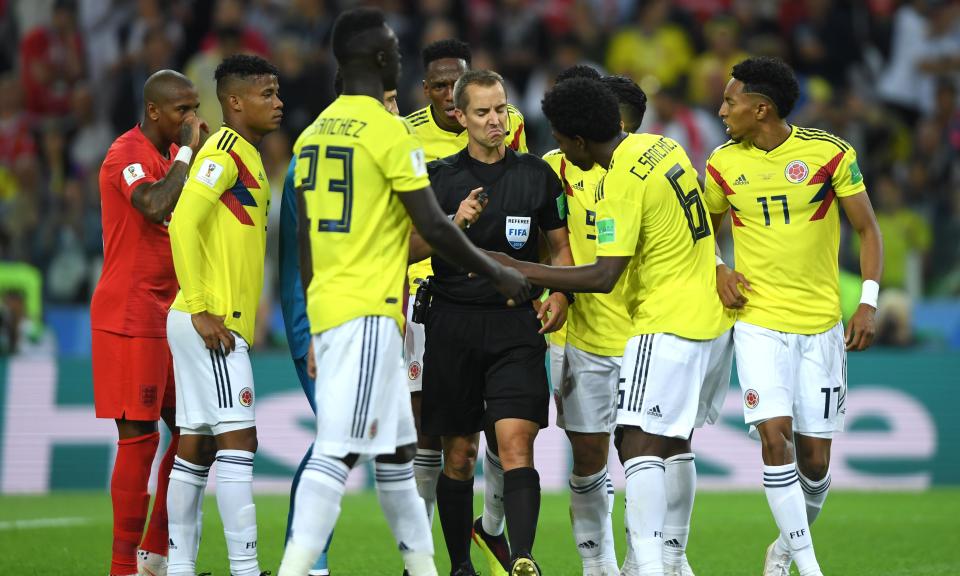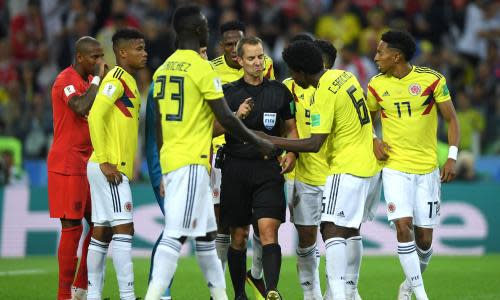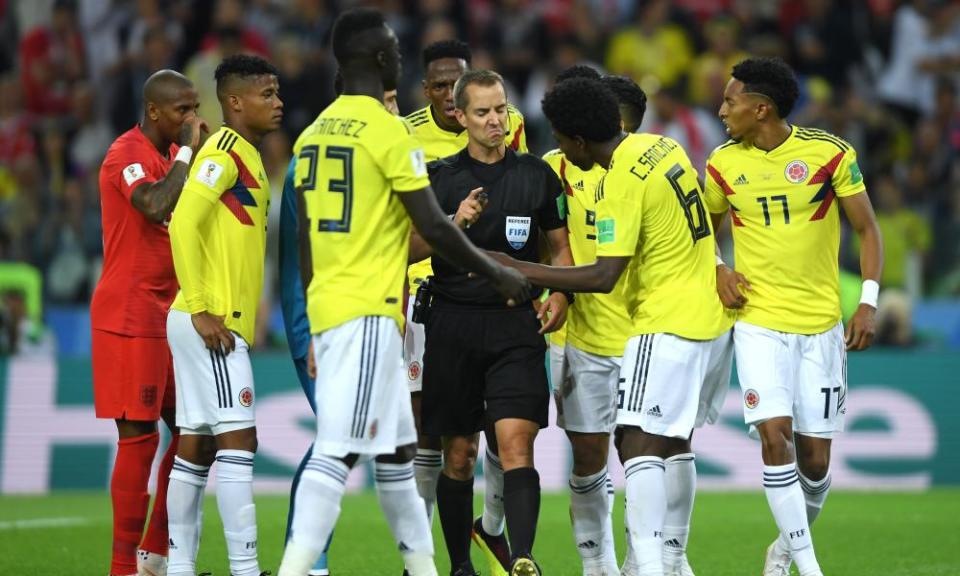There is a cloud hanging over this World Cup and Fifa must not ignore it
There was a time when we used to sneer at the antics deployed by South American nations, or the histrionics on show in La Liga, wondering how supporters put up with all the play-acting, but everyone’s at it now, including – and let’s not kid ourselves – England players. “Shithousery” is the word that gets bandied around these days. Others will know it simply as cheating and, sadly, it’s the one cloud that hangs over an otherwise brilliant World Cup in Russia.
Plenty of people will have come across comical clips of Neymar on social media, showing him rolling down motorways and mountains and along country lanes, following that series of exaggerated tumbles against Serbia. Yet the Brazilian is far from alone when it comes to feigning injury and trying to deceive officials.
READ MORE: Can Kane be caught in the race for the Golden Boot?
READ MORE: England v Colombia breaks TV ratings as Three Lions make history
Play-acting has been commonplace at this World Cup. It’s become a cancer in the game, not just a stain on it, and Fifa needs to find a cure. Either football’s world body confronts it head on, by introducing tougher penalties and urging referees to adopt a zero tolerance approach, or we hand over control to the players and resign ourselves to the fact that shithousery is now “part and parcel of the game”. What a depressing thought.
What is clear right now is that the players, not the officials, are in charge. It was a free-for-all at times in the ugly spectacle that passed as a World Cup knockout game between England and Colombia, in particular the ridiculous amount of time – getting on for four minutes – between Mark Geiger, the referee, penalising Carlos Sánchez for what was a stonewall penalty and Harry Kane, showing nerves of steel, converting from the spot.
Half a dozen Colombia players surrounded Geiger, much like the way that bullies pick on the vulnerable kid at school. There was zero respect for the referee, and bear in mind that Sánchez, grappling with Kane in the area with the ball nowhere near him, had been caught bang to rights. Perhaps Geiger should have been stronger and booked that posse of Colombia players, one after another. “Don’t understand why referees put up with in-your-face abuse,” Gary Lineker wrote on Twitter. “Give them yellow cards and stop the nonsense.”
Why can’t referees do that? If players know a caution is the mandatory response to any haranguing of officials, then the unacceptable scenes played out in Moscow on Tuesday night, or at the end of the Portugal v Uruguay last-16tie on Saturday, when Ricardo Quaresma was nose-to-nose with the Mexican referee and Cristiano Ronaldo was screaming in his face, will surely disappear.
If they don’t, some of the players are bigger birdbrains than we thought.
As for play-acting, it should be right at the top of Fifa’s agenda. Simulation is nothing new – picture Rivaldo clutching his face in 2002 after the ball hit him on the leg, or Jurgen Klinsmann throwing himself into the air in the 1990 World Cup final. Yet, sadly, it feels as though we have plumbed new depths in Russia.
We can all shake our heads at Pepe when he shamelessly falls to the floor after Morocco’s Mehdi Benatia taps him on the shoulder, but the reality is that the Portugal international is just one clown in a much bigger circus. Colombia, for sure, were a disgrace at times against England, unrecognisable from the team that illuminated the World Cup four years ago.

But take off your three lions shirt for a moment, put down your union jack flag, watch the game again and England’s players were no angels. Jordan Henderson and Harry Maguire (and, yes, the Leicester defender did at least hold up his hands after he took a tumble) were among those exaggerating or feigning contact.
Gareth Southgate was asked about England’s conduct afterwards by a Russian journalist, who suggested to him that the current generation of players, unlike the team that the manager had been part of in the 90s, “falls down every time the wind blows”. Southgate, a dignified man working in an undignified game, replied: “Maybe we’re getting a bit smarter. Maybe we’re now playing by the rules the rest of the world are playing by. I thought there were many, many fouls in the game and I don’t think we conceded anywhere near the number of our opponents. If we went down, it’s because we were fouled.”
Leaving aside the last comment, which Southgate has to say in the circumstances, the England manager was being brutally honest. This is a game where anything goes now, where perfecting the darker arts is as much of a skill as executing a lovely one-two, and where cheating is passed off as being streetwise. As Southgate succinctly put it: “We’re now playing by the rules the rest of the world are playing by.”
Truth be told, it descends into a lawless game of skulduggery at times. And, quite frankly, who can blame England for getting their hands dirty and taking the view that the next round is a better place to be than the moral high ground. If you can’t beat ’em, join ’em.
What is also increasingly clear now is that there are many players – Pepe, Sergio Ramos and Neymar spring to mind immediately – who do not care a jot that their cheating is watched by hundreds of millions of people throughout the world, analysed in television studios by former internationals, and highlighted and ridiculed on social media.
To be clear, it’s not about those players being role models – that’s more of a job for parents, not footballers. But do these players take no personal pride, or see any shame, in how they conduct themselves on the pitch?
That same footage – and more – is also being viewed by 13 officials who have access to 33 cameras in a control room in Moscow, where they perform the roles of video assistant referees – and you can probably see where this line of thought is going. Does there not come a point when the only way to iron out blatant cheating is to extend the remit of video technology to stray beyond correcting “clear and obvious errors” in “game-changing situations” and intervene in cases of play-acting, too?
The difficulty, of course, is that interpreting some of the incidents – whether at the time or even retrospectively the following day – can be highly subjective and there are occasions when only the player knows whether they are feigning.
Either way, something has to be done. Fifa, at the very least, needs to show a determination to tackle the disease. Officials have to be stronger. And here’s a revolutionary thought: how about the players take a bit of responsibility for their actions, too.




